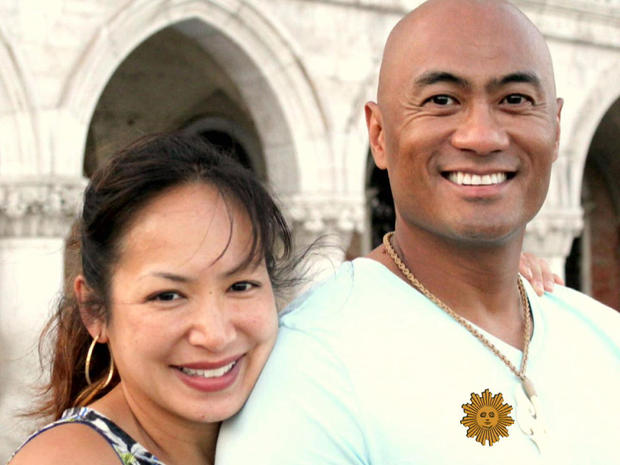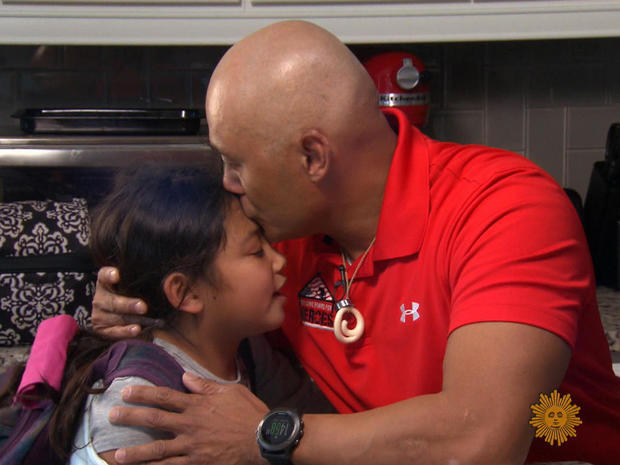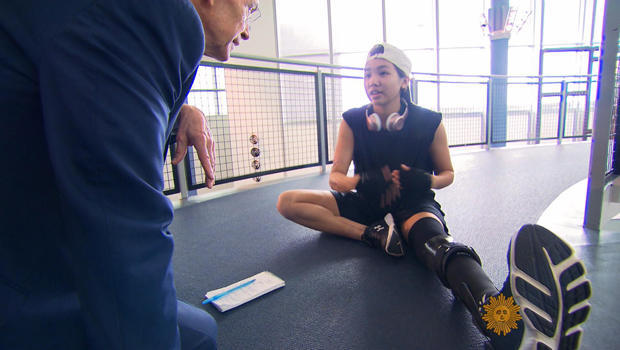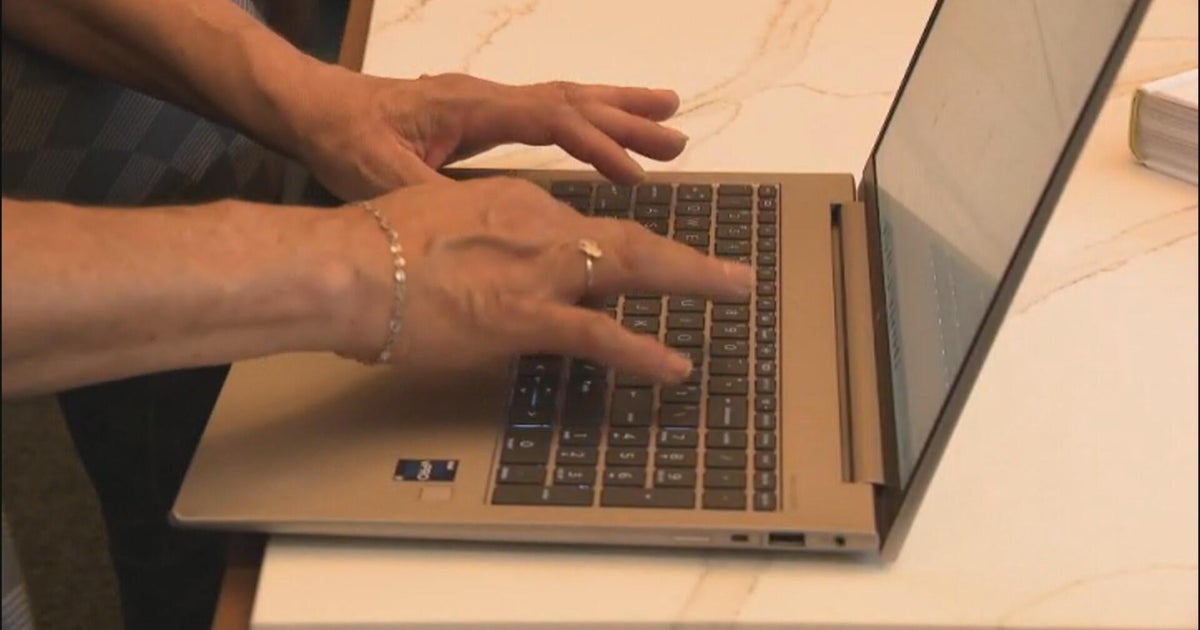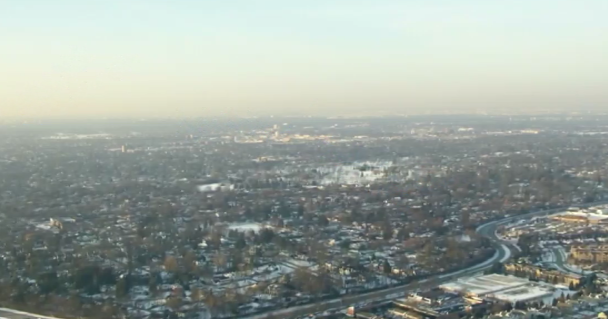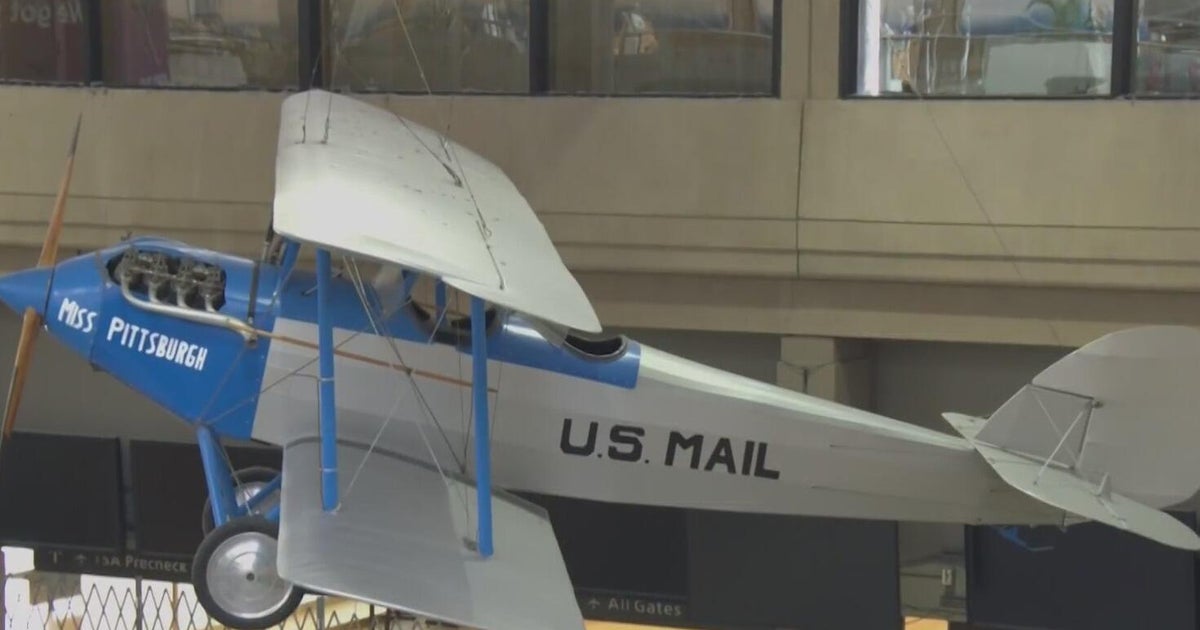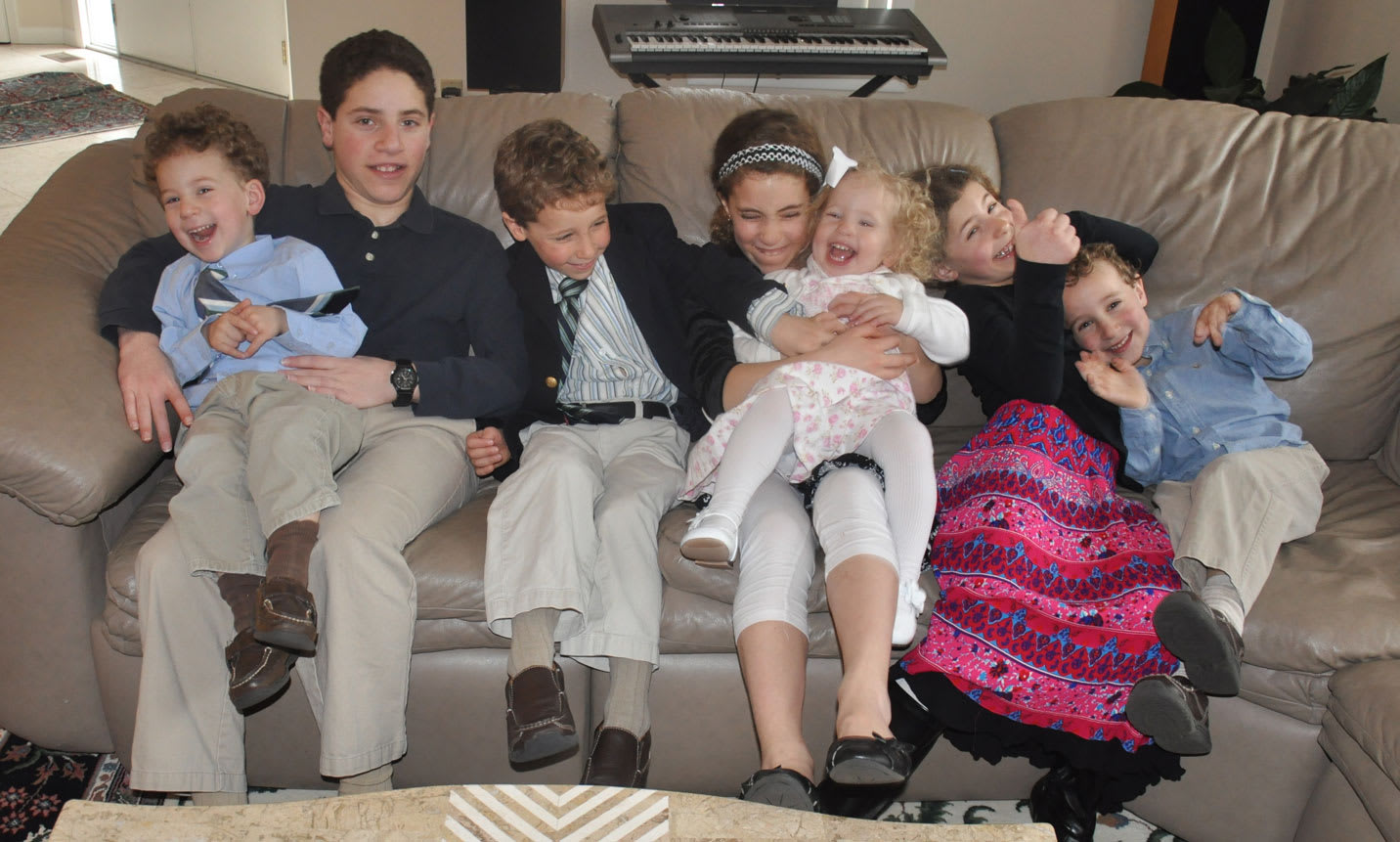Aftermath: A family's recovery
Dealing with the aftermath of a terrorist attack is something no family should have to endure -- least of all on Mother's Day. Our Cover Story is from David Martin:
Kato Martinez and his children, pictured on a perfect spring day in the suburbs of San Antonio, are a family trying to wake from a nightmare.
"The last thing I remember before the blast was my mom laughing," said Kiyanni.
That blast was a suitcase bomb in Brussels Airport last year, just as the Martinez family was checking in for a trip to Disney World in Florida. Kiyanni is the family's oldest child.
"I just saw fire, burned bodies, body parts, and I looked down at my leg and there was white sticking out of it," she remembered. "And I realized that the person that I heard screaming was myself."
Air Force Lt. Col. Kato Martinez, who was probably less than six feet from the bomb, said, "I don't know how I survived."
Martinez, a communications officer who worked with Special Operations Forces, was just back from Afghanistan.
"You were probably closer to the enemy in Brussels Airport than you were in Afghanistan," said Martin.
"Probably, sir. And I've been in some bad places in Afghanistan."
Amid the mayhem, he found his wife, Gail.
"She was laying on her back," Martinez said. "Her leg was blown off, below the knee. I went to her as fast as I could and put a tourniquet on her leg to stop the bleeding. Checked her vitals, and there was none there."
Kiyanni remembered, "I saw my Dad and he was cradling Mama. Her eyes were closed and he was screaming."
The other children -- ages seven, nine and 12 at the time -- were nowhere in sight.
Martinez could not find his three youngest: "I thought because they were so young and so small they were vaporized or torn apart."
Paramedics carried Kiyanni outside on a stretcher. "And then they brought out my Mom," Kiyanni said. "She was smiling but she wasn't breathing and I knew she was gone. And then they brought out Dad to lie down right next to me, and for a while he just lied there as he held my hands, but then his grip started loosening."
Martinez described feeling a darkness surround him: "I just wanted to give into it, just gladly go, go into the night and just fall asleep. I just told her before I closed my eyes, 'I love you, and if you see the kids take care of them.'"
To which Kiyanni responded, "'Don't leave me, please don't leave me.' And so when the first responders came with some oxygen masks, they tried to put it on me because I was the child, but I started flailing around and screaming at them to put it on Daddy to make sure he was alive."
"So your daughter brought you back?" Martin asked.
"She did. She saved me that day."
The younger children -- Noalani and Kailani -- were small enough to be shielded from the full fury of the blast by baggage piled around them at the check-in counter. Twelve-year-old Kimo was shielded by his father.
"Had I not been in front of him and the bags, he would have taken a face full of shrapnel," Martinez said.
Still, Kimo was badly burned by the fireball, with third-degree burns on 40 percent of his body -- skin and fat burned all the way down to the muscle. "We didn't know if he was going to make it or not," Martinez said.
Kiyanni's left leg was so badly injured doctors thought they would have to take it off below the knee. "It was cold. It was blue," she recalled. "There was nothing flowing to it because I had lost so much bone, so much muscle and so many nerves that they thought that it would be better for me to have it amputated. But then as a last ditch effort they decided to do an arterial graft for this leg and put it into this leg. So it really was a miracle surgery."
Six months later, she performed her own miracle: Standing on that leg for a full five seconds. It was her 18th birthday. Less than a month later she was walking.
Now Kiyanni is running, although she will have to wear an uncomfortable brace for the rest of her life. She also came close to losing her right arm to a piece of shrapnel which left a nasty scar. "I don't hide my scars," she said. "I've come to the conclusion that while my scars are visible, they don't define me."
It is her Purple Heart.
Kato's scars are not as visible: "I've got two pieces of shrapnel on my spine, and I've still got 15 pieces in my right foot. So every day is painful."
Physical pain is the least of it for a veteran of two combat tours. "You can't prepare for when they bring that war to your house, and they bring it to your family and they take away your wife," he said. "All my training experience went out the window when I was holding my wife in my arms. 'Cause I failed my children and my wife."
That sense of failure almost drove him to suicide.
He recalls the moment he held a gun to his mouth: "I thought about it. Then I realized that no matter how dark it could be, you know, how lonely I feel about what's going on with me, I knew it was a selfish act. I've got four little kids that rely on me."
Now he's Mr. Mom, finding out what it takes to raise family: "Between cleaning and cooking and taking the kids to their respective extra-curricular activities and school, I broke down. I said, like, 'I gotta hire someone to do this!'" he laughed. "So twice a month, I have a cleaning crew come in."
"Do you realize what you're telling me?" Martin said. "You're going out on deployments with special operations forces and you come back and you break down over cleaning?"
"I can lead a team of men and women out in combat, but, man, I gotta tell you, it's so hard to be a father of four kids!"
Lt. Col. Martinez is back on active duty, this time a desk job, which gives him more time with his kids.
Kimo has an arm like a cannon, his dad says. But the scar tissue from his burns is so tight that just dropping into a squat is a small victory; and his hand will need more surgery before he can properly grip a baseball bat.
But when asked if he's going to come back all the way, Kimo replied, "I think so. Even better!"
San Antonio is the tenth place the Martinez family has called home as they've moved from post to post around the world.
Martin asked Kiyanni, "When somebody asks you 'Where's home?' what do you tell them?"
"Well, for me, home is Mama. She's the constant."
Now it's a home filled with pictures of someone no longer there, a wife and mother who was murdered by three terrorists who wheeled suitcase bombs into the Brussels Airport.
We wish we could tell you the dark days are over, that good has triumphed over evil. But we can't.
Kiyanni said, "I still suffer from doubt, from severe depression, from hopelessness, from guilt, regret."
She is starting college with wisdom no 18-year-old should have. "I have a different mindset now going forward. I'm not afraid to die. I'm more afraid of wasting a day and regretting not doing something important, like saying 'I love you' to my family."
"You know things other people don't know," said Martin.
"If I can touch at least one person, even if that's a teenager like me in college, to pick up the phone and call their parents and say, 'Thank you for everything. I love you,' then I've made a difference, and that's all, it's all that I need."
EDITOR'S NOTE: This story won the 2018 News Emmy for Outstanding Feature Story in a Newscast. Correspondent: David Martin. Producer: Mary Walsh. Co-Producer: Joseph L Frandino. Executive Producer: Rand Morrison. Senior Producers: Gavin Boyle, Amy Rosner, Jason Sacca.
